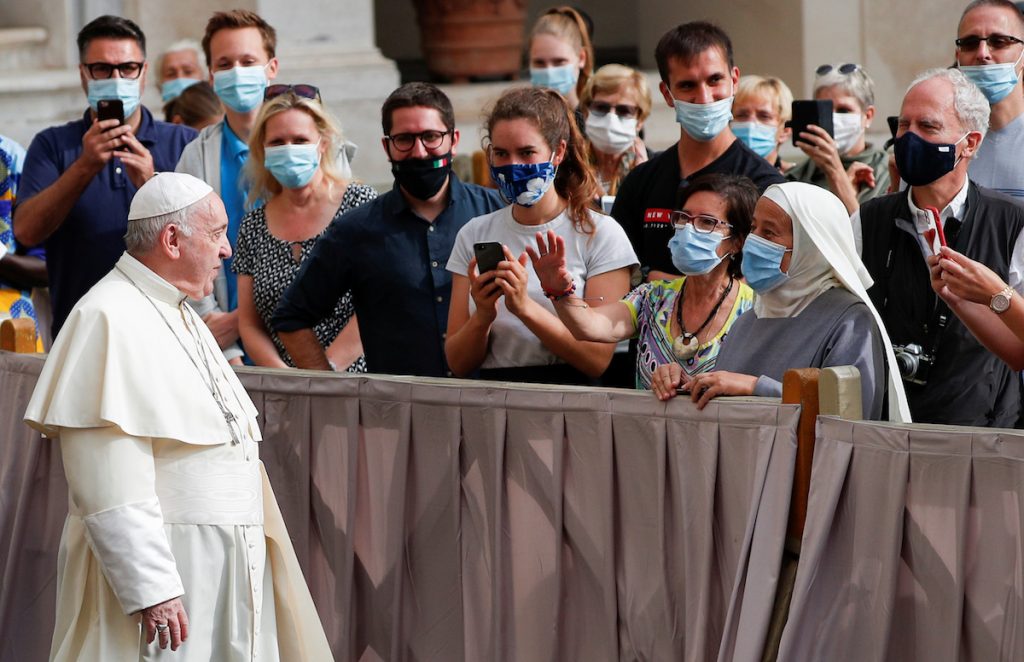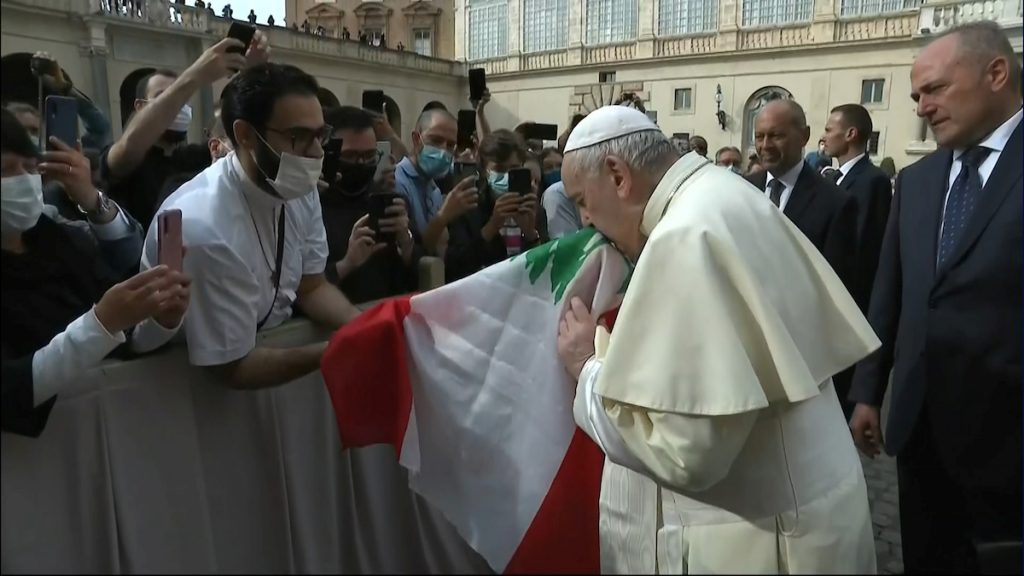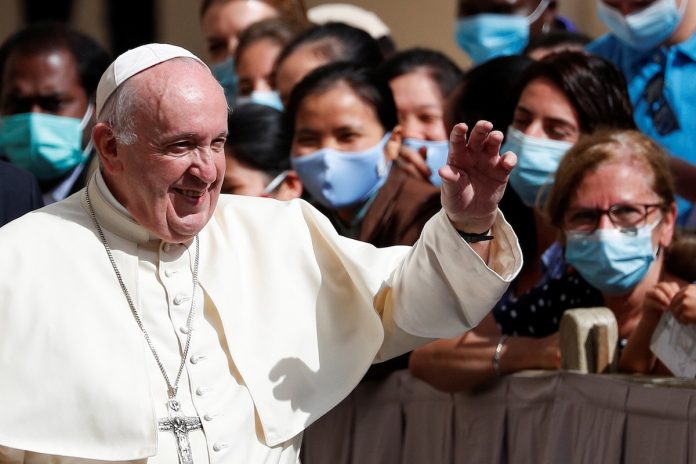Pope Francis held his weekly general audience in public for the first time in six months on Sept. 2, smiling and chatting as he re-emerged from the constraints of the coronavirus lockdown.
The audience, at which the pope announced a day of prayer and fasting for Lebanon, was held in the San Damaso courtyard of the Vatican’s Apostolic Palace and gave him the public contact he thrives on.
Visitors had their temperatures checked as they entered the Vatican and nearly everyone among the audience of 500 or so — including Swiss Guards in ceremonial uniforms — wore masks. The public sat in seats arranged to ensure social distancing.
“After so many months, we resume our encounters face to face and not screen to screen, face to face, and this is beautiful,” he said to applause at the start of the audience.
Pope Francis clearly enjoyed himself as he walked past guests who had pushed together behind barriers, frequently stopping to converse with them from a distance of one to two meters.
The pope last held an audience with a public crowd in early March. After that, the coronavirus pandemic forced him to hold virtual audiences transmitted from the official papal library over television or the internet, an experience he described as akin to being “caged”.
He blessed children from a distance as he passed on the way to a dais to make his address.

Pope Francis appeared to be energised by the crowd — even though it was a far cry from the tens of thousands that can be held in St. Peter’s Square, where outdoor audiences are usually held.
Pope Francis kissed a Lebanese flag handed to him by Lebanese priest Georges Breidi and bowed his head to say a silent prayer for the country, still reeling from last month’s deadly port blast and rising sectarian tensions.
At the end of the audience he invited the priest to the front to hold up the flag as the pope made an appeal for peace and dialogue in Lebanon.
He announced that Sept. 4 would be a day of prayer and fasting for Lebanon and that he was sending his Secretary of State, Cardinal Pietro Parolin — the number two in the Vatican hierarchy — to Beirut on that day to represent him.
He invited members of other religions to take part.
“Lebanon cannot be abandoned to itself,” Pope Francis said, asking politicians, religious leaders to commit themselves with “sincerity and transparency” to reconstruct the country and for nations to help “without getting involved in regional tensions”.










